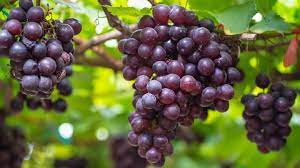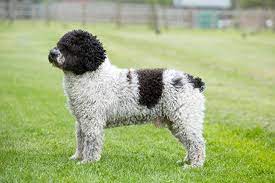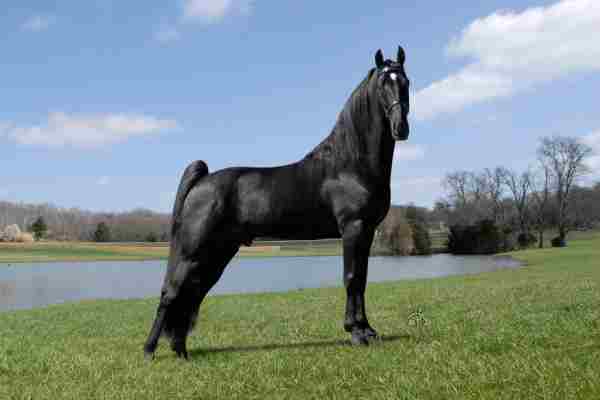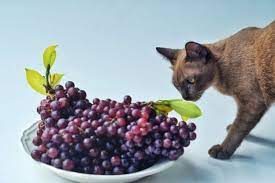When it comes to sharing our favorite fruits with the animal kingdom, caution is often the name of the game. Yet, there’s one delectable delight that has left many pet owners pondering: can animals eat grapes? These plump, juicy orbs are a staple in many households, but their compatibility with our furry, feathered, and scaly friends isn’t always straightforward.
In this exploration of gastronomic compatibility, we’ll delve into the world of what animals eat grapes and discover which members of the animal kingdom can safely indulge in this sweet treat and which should steer clear.
From the curious canines who might snatch a grape from your hand to the wild critters who might stumble upon a forgotten vineyard, we’ll uncover the surprising truths about grape consumption among animals. Whether you’re a pet parent, a wildlife enthusiast, or simply a grape aficionado, you won’t want to miss this informative journey into the world of fruitarian fauna.

The Popularity of Grapes as a Snack:
Grapes have long held a coveted place on our plates as a popular and versatile snack. Their irresistible combination of sweet and tart flavors, coupled with their refreshing juiciness, makes them a favorite among people of all ages. Whether enjoyed as a quick on-the-go treat, added to fruit salads, or transformed into delightful raisins or wine, grapes offer a delightful burst of flavor that few other fruits can match.
The convenience of grapes, requiring no peeling or cutting, further elevates their stackability. They come neatly packaged in nature’s own wrapper, making them an ideal choice for busy individuals seeking a healthy and satisfying munch.
Potential Dangers of Feeding Grapes to Animals:
While grapes have secured a top spot in the human snacking realm, their consumption by animals poses a significant risk. Grapes, whether fresh or dried into raisins, contain compounds that can be toxic to various domesticated pets, including dogs and cats. These compounds, though harmless to humans, can lead to severe health complications in animals, ranging from kidney failure to gastrointestinal distress.
Consequently, pet owners must exercise extreme caution when sharing grapes with their furry companions. The exact reason why grapes are harmful to certain animals remains a subject of ongoing research, but the potential dangers are clear, underscoring the importance of responsible pet ownership and awareness regarding food hazards.
Grapes and Their Components
Grapes are not only a delicious snack but also a nutritional powerhouse, boasting a range of components that contribute to their health benefits. These tiny globes of goodness are packed with antioxidants, vitamins, and minerals that make them a popular choice for those seeking a nutritious addition to their diet.
One of the key components of grapes is their high antioxidant content. These antioxidants, such as resveratrol and quercetin, play a crucial role in protecting our cells from oxidative damage caused by free radicals. Resveratrol, in particular, has gained attention for its potential health benefits, including its possible role in reducing the risk of heart disease and promoting longevity.
Grapes are also a good source of vitamins, particularly vitamin C and vitamin K. Vitamin C supports the immune system, helps with collagen production, and acts as an antioxidant. Vitamin K plays a vital role in blood clotting and bone health.
Additionally, grapes contain essential minerals like potassium, which is crucial for maintaining proper blood pressure and heart function. Their natural fiber content aids in digestion and can help regulate blood sugar levels.
Humans:
Humans can safely consume grapes as part of a balanced diet. Grapes offer various health benefits to people, including antioxidants, vitamins, and dietary fiber. They make for a tasty and nutritious snack or addition to salads and desserts. However, it’s essential to consume grapes in moderation because they are calorie-dense and contain natural sugars. While grapes are generally safe for human consumption, they can pose a choking hazard for young children and should be cut into smaller pieces for safety.
Dogs:

Feeding grapes to dogs is a significant concern, as grapes and raisins can be toxic to them. Consumption of even small amounts can lead to kidney damage and potentially life-threatening kidney failure. It’s crucial for dog owners to be aware of this danger and to avoid giving grapes or raisins to their canine companions. If a dog accidentally ingests grapes, immediate veterinary attention is necessary to mitigate the risk of toxicity.
Cats:

Cats are generally not recommended to consume grapes. While some cats may show no adverse effects from eating small amounts of grapes, there is a risk of gastrointestinal upset or potential toxicity, so it’s best to err on the side of caution and avoid offering grapes to cats altogether. It’s advisable to provide feline-friendly treats and foods that are safe for their digestive system.
Horses:

Horses can consume grapes in moderation as an occasional treat. Grapes are non-toxic to horses and can be a tasty reward for these large herbivores. However, like all treats, grapes should be given sparingly to prevent overindulgence, as excessive consumption of sugary foods, including grapes, can lead to weight gain and metabolic issues in horses. When offering grapes to horses, it’s a good practice to cut them into smaller pieces to reduce the risk of choking.
Birds:

Some bird species can safely eat grapes, making them a delightful addition to their diet. Birds such as parrots, doves, and some songbirds may enjoy grapes as a treat. However, it’s essential to provide grapes in small, manageable portions to prevent waste and ensure that the fruit is fresh and clean. Remove any seeds if present, as they can be a choking hazard. Always observe your bird’s preferences and monitor their digestion when introducing new foods like grapes into their diet to ensure they are well-tolerated.
Safe Practices for Feeding Grapes to Animals:
Feeding grapes to animals requires careful consideration of their safety and dietary needs. When it comes to humans, grapes can be a delightful and nutritious snack if consumed in moderation. However, young children should be supervised to prevent choking, and grapes should be cut into small pieces for safety.
For dogs, safe practices dictate complete avoidance of grapes and raisins. These fruits have the potential to cause kidney damage, even in small amounts, making them a dangerous treat for our canine companions. To ensure their well-being, pet owners should be vigilant and educate themselves about the risks associated with grapes.
Cats, too, should be kept away from grapes. While the effects of grape consumption in cats are not as well-documented as in dogs, it’s best to err on the side of caution. To pamper feline friends, consider offering cat-specific treats that cater to their nutritional needs and digestive sensitivities.
Horses can enjoy grapes as an occasional treat, but this should be done in moderation. Cutting grapes into smaller pieces helps prevent choking hazards. Monitoring a horse’s overall diet and weight is crucial, as excessive sugary treats, including grapes, can lead to health issues.
Birds, particularly certain species like parrots, may relish grapes as a special treat. However, it’s essential to provide them in small, manageable portions, and always observe how the birds respond to this addition to their diet.
Alternatives to Grapes for Animal Treats:
For humans seeking alternative snacks to grapes, an array of fruits like apples, berries, and citrus fruits offer a similar burst of flavor and nutrition. Veggies such as carrot sticks or cucumber slices are also healthy options. Ultimately, the choices are vast and can be tailored to personal preferences and dietary restrictions.
For dogs, numerous pet-friendly treats are available on the market, ensuring that our four-legged friends can enjoy tasty rewards without the risk of grape toxicity. These treats come in various flavors and textures, catering to different canine tastes.
Cats have a penchant for protein-rich treats, such as commercial cat treats or small portions of cooked meats. These options align better with their carnivorous nature and provide a satisfying indulgence.
Horses can relish treats like carrots, apples, or specialized equine treats designed to be nutritious and safe for their consumption. These alternatives offer variety and enjoyment without compromising their well-being.
Birds can enjoy a medley of fruits and vegetables, including apples, berries, and leafy greens, in addition to their regular bird feed. These choices introduce diversity into their diet and can be tailored to their specific species’ preferences.
Final Words:
In the realm of feeding grapes to animals, safety and awareness are paramount. While grapes remain a delectable treat for humans, their consumption by pets, such as dogs and cats, should be strictly avoided due to the potential for toxicity. Horses and some bird species can indulge in grapes, but even then, moderation and caution are key.
Considering the diversity of alternative treats available for animals, there’s no shortage of ways to pamper our furry and feathered companions safely. Whether it’s apples for horses, specialized pet treats for dogs, or a variety of fruits and veggies for birds, responsible pet owners can provide delightful treats that cater to their animals’ dietary needs while ensuring their well-being. By staying informed and making informed choices, we can nurture the health and happiness of our beloved animal companions.
Reference:
- http://wildlifehabitat.tamu.edu/plants/vitis.aspx
- https://eartheclipse.com/animals/can-squirrel-eat-grapes.html
- https://www.growgardener.com/what-animals-eat-grapes/

Zahra Makda
Growing up enjoying the beauty of my village, a good passion for nature developed in me from childhood. Following my passion for the natural world, I have chosen zoology for my graduation, during my undergraduate degree, I participated in many nature trails, bird watching, rescues, training for wildlife conservation, workshop, and seminars on biodiversity. I have a keen interest in invertebrate biology, herpetology, and ornithology. Primary interests include studies on taxonomy, ecology, habitat and behavior.









